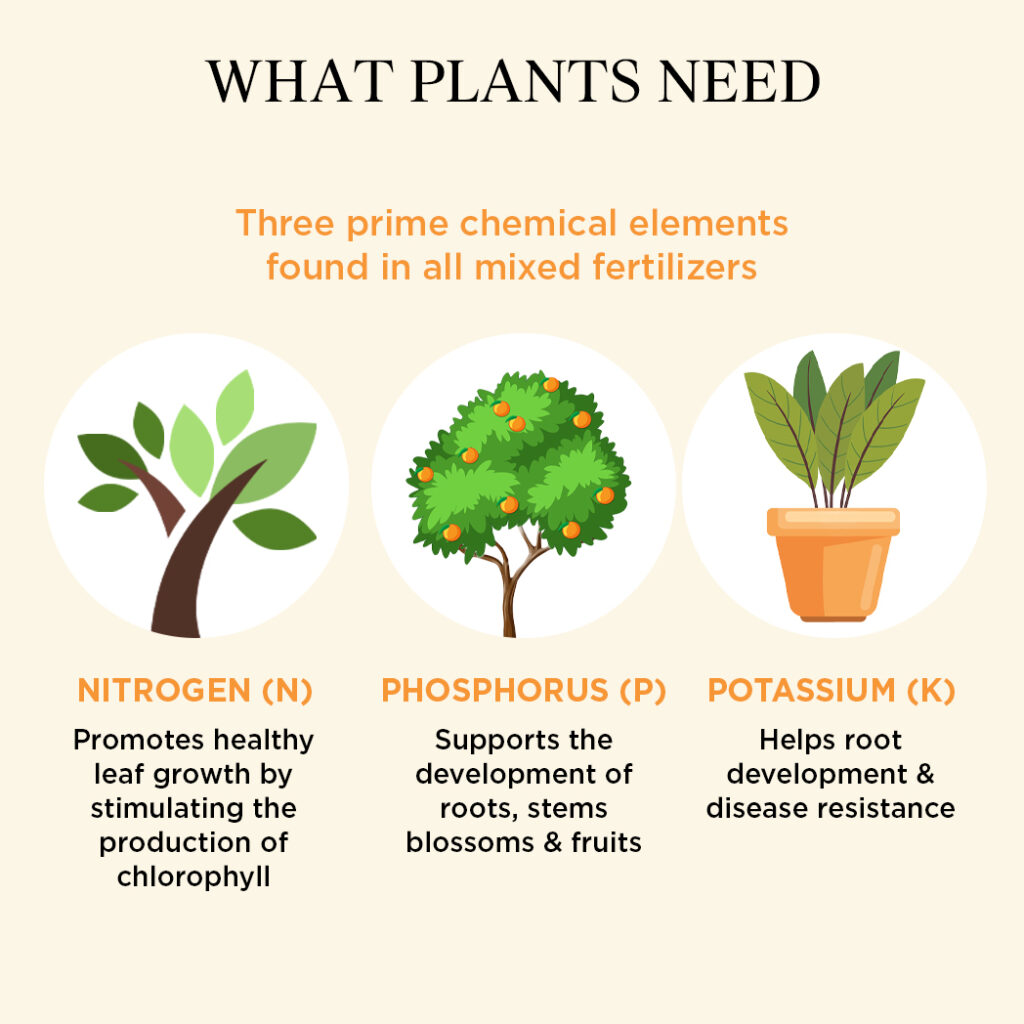
“A healthy outside starts from the inside.”
In the world of plants, there exists a special toolbox they use, not filled with conventional hardware, rather with important minerals that they require. Just as an artisan relies on a well-organised toolkit for precision and finesse, these minerals serve as intricately calibrated instruments, catering to the distinct requirements of your garden. Each mineral is like a special piece in the big machine that keeps the plant healthy and strong. Within a toolbox, there are a mix of tools from power tools to precision tools that serve various purposes. In a similar fashion, plants rely upon a powertool trio of nitrogen, phosphorus and potassium called the N-P-K trio.

The N-P-K trio form the basic nutrient combination, much like the power tools within a toolbox. This is the cornerstone of plant nutrition, fueling growth, building sturdy roots, and fortifying against possible adversity. Balancing these nutrients is crucial as plants rely on each mineral for the following reasons:
Nitrogen (N) –
This is vital for leafy, green growth. Nitrogen helps plants produce chlorophyll, the pigment responsible for photosynthesis, which is how plants make food. Furthermore, it aids in the formation of proteins, enzymes and DNA which are all essential for overall plant development.
Phosphorous (P) –
This is essential for root development, flowering and fruiting. It helps plants convert other nutrients into usable building blocks for growth and energy transfer. Stronger roots means better nutrient uptake and overall plant resilience.
Potassium (K) –
This is crucial for many of the plant’s physiological processes. It regulates water uptake and loss, helps with disease resistance and contributes to overall plant vigour. It also plays an important role in the synthesis of both proteins and carbohydrates.
We must understand that the toolbox isn’t limited to just these power tools. It is filled with an array of specialised instruments such as iron, manganese, zinc, copper, boron, molybdenum and chlorine. All of these are essential for your plant’s health and well-being. Iron and manganese are essential for chlorophyll production and enzyme functions. These enzyme functions are further helped by nutrients such as zinc and copper. On the other hand, boron is critical for cell wall formation, pollen development, seed production and sugar transport within the plant. Last but not least, molybdenum and chlorine are essential for nitrogen metabolism and aiding in photosynthesis respectively. These particular micronutrients are necessary in small quantities for various physiological and biochemical processes in plants. Their absence or deficiency can result in stunted growth, yellowing of leaves, reducing crop yield and susceptibility to diseases. Balancing their presence is crucial for optimising plant growth and health.
In plant nutrition, this toolbox analogy provides a clear picture of the essential elements plants need for their well-being. Just as a craftsman selects specific tools for different tasks, plants rely on a combination of nutrients, akin to a toolbox. This includes power tools like the N-P-K trio, and a spectrum of specialised minerals like iron, manganese and others. These minerals function like precision instruments, each contributing uniquely to the plant’s health and growth. Understanding and balancing these nutrients in the soil is the key to fostering robust growth, fortifying against diseases and ensuring the vitality of the plants in our garden. As we grasp the importance of this diverse toolbox, we empower ourselves to provide plants with the right instruments for their flourishing, embodying a harmonious partnership with nature’s intricate mechanisms.




